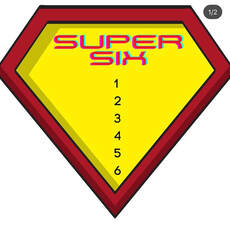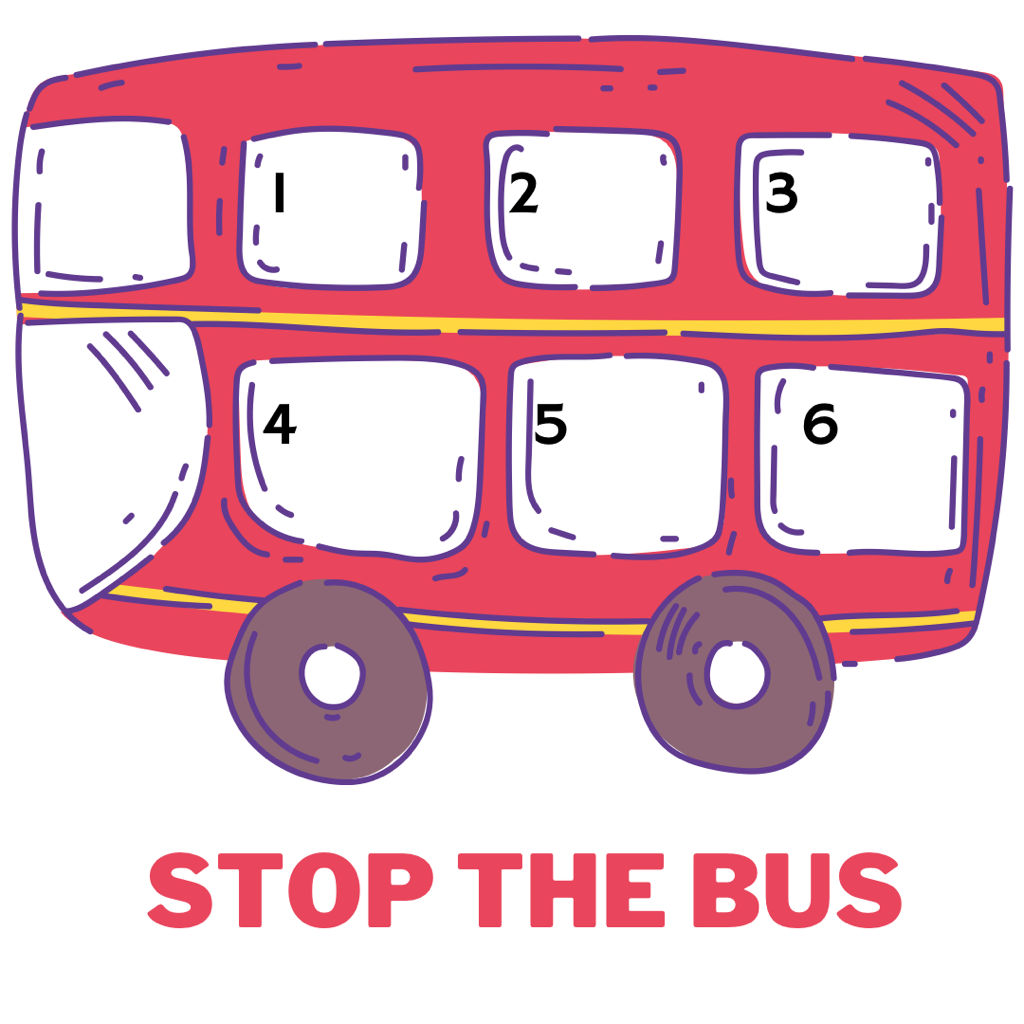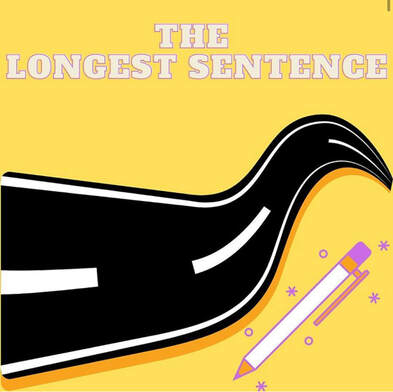Quick Wins
Here are my favourite 'quick wins.' Low effort but high impact-activities which often only require a whiteboard and pen and nothing else. A few activities may require a computer and speakers too!
Poker
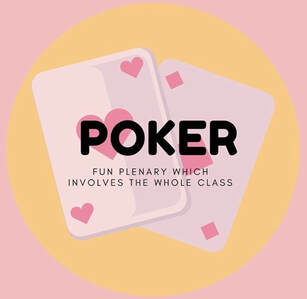
This game is popular amongst students and it gets them ALL involved. Put up a question/sentence to translate, if a student knows the answer, they put their hand up. If a student is unsure/doesn't know the answer, they can 'bluff' and put their hand up anyway. Choose a student to give the translation/answer the question. If they get the answer correct, they get a point and so does everyone else with their hand up. If they get the answer wrong, they lose all of the points. How good is their poker face? Students can't help but get involved - even the quiet ones!
Silent Debate/Speaking

This activity is great for sixth form but I have tweaked it for lower down the school too. A topic or controversial statement/question is written in the middle of a piece of paper. Students debate the topic but can only give their opinions in written form. They must even express their feelings/interjections etc in written form (drawing/smiley face/word). For larger classes, have a few different topics or questions dotter around the room and they can rotate.
Younger students can have a conversation in written form only. This helps practise asking and answering questions.
Younger students can have a conversation in written form only. This helps practise asking and answering questions.
Just a Minute

A name generator/spinning wheel selects a student's name and topic. Student talks about that topic for 1 min. This can also be done as a whole class where the generator just picks a topic and the student speaks for 1 min on that topic to their partner.
Pointless
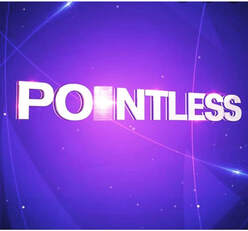
There are a few variations of this game. The first one is my favourite and a super easy low effort/high impact game.
1) Pick a topic. Students write down 5 words on their mini whiteboard to do with that topic. Teacher does the same (I try and think of obvious words to make them be a bit more adventurous with their vocab choices.) At the end of the timer, they show their words. If they have the same as you, they get 5 points (per word) and if they get the same as any other student in the class, they get 2 points (per word). The winner is the student with the least points at the end of the game.
2) @classroomgerman also shared a Pointless game on Instagram.
3) I love the actual TV show pointless (my husband thinks I resemble Richard Osman - he's pretty clever so I'll take that - though he's talking about looks-wise lol). But there are often questions in foreign languages which are great to show students.
1) Pick a topic. Students write down 5 words on their mini whiteboard to do with that topic. Teacher does the same (I try and think of obvious words to make them be a bit more adventurous with their vocab choices.) At the end of the timer, they show their words. If they have the same as you, they get 5 points (per word) and if they get the same as any other student in the class, they get 2 points (per word). The winner is the student with the least points at the end of the game.
2) @classroomgerman also shared a Pointless game on Instagram.
3) I love the actual TV show pointless (my husband thinks I resemble Richard Osman - he's pretty clever so I'll take that - though he's talking about looks-wise lol). But there are often questions in foreign languages which are great to show students.
Language Simile
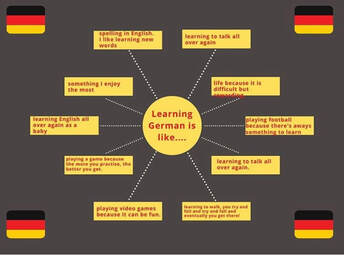
This is such a lovely idea! Share by Amanda Kimberley in her Linguascope webinar over lockdown. Students finish the sentence: 'Learning <insert language" is like......' It makes students think and reflect on their learning and gives the teacher an insight into how they find your subject. Here are some of the responses from my Y7 German group last year.
The Star Game
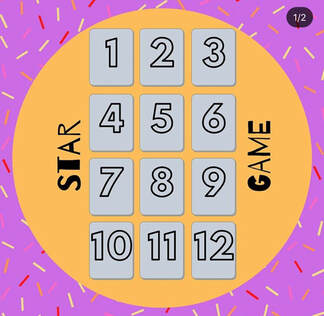
So this one takes a little bit of setting up in the first instance, but once you have your cards or slide, you're sorted! This is a good plenary task which students really enjoy. You have 12 numbered cards. Most cards have a Q written on the back but a couple have a star * or a 0. Split the class into two teams. A student picks a card. If it is a Q, they answer a question and if correct, their team gets a point. If they find a *, they automatically get 5 points and no question (cue lots of cheers!) A 0 means they lose all of their points, however.
I find it useful having a set of little, laminated cards in my bag with a bit of bluetack in case there are tech issues but a PPT slide would be another option. Especially if you want to keep using with the same group as they start to remember where the *s are!
I find it useful having a set of little, laminated cards in my bag with a bit of bluetack in case there are tech issues but a PPT slide would be another option. Especially if you want to keep using with the same group as they start to remember where the *s are!
Fast Poem
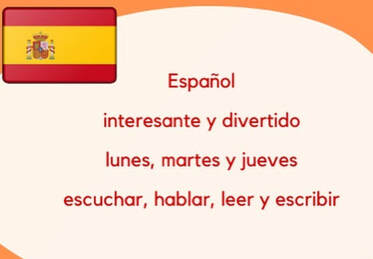
Thank you to @sarita86 on Twitter who saw this idea shared in a webinar by "prince_helen. This is such a simple but great idea!
Ask students to write a fast poem by writing down:
1 noun
2 adjectives
3 adverbs
4 verbs
I have even seen an example of this being used in Science! Love a quick-win!
Ask students to write a fast poem by writing down:
1 noun
2 adjectives
3 adverbs
4 verbs
I have even seen an example of this being used in Science! Love a quick-win!
Industrial Spy
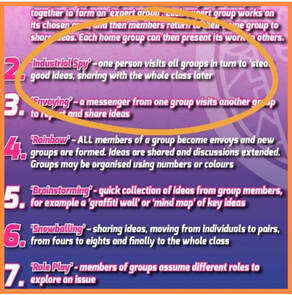
Revision: Good for any subject! Students work in groups of 4ish and they are all given the same topic to brainstorm. One 'spy' from each group can then go around the room and steal ideas from the other groups for a set amount of time. They then have to go back to their group and feedback from memory. The group with the most ideas/words/sentences on the topic wins!
Inspirational Quote

A nice idea for the start of an academic year. This was shared by a new colleague at my school. Show some inspirational quotes about learning languages and then ask students to create their own. I was in a computer room with a Y9 class for this and I asked them to type their quotes onto whiteboard.fi and I shared them with the class. But they could do the same on a mini-whiteboard or even create a poster for homework.
One Pen, One Dice
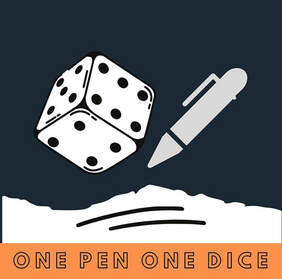
This #MFLTwitterati staple had to be included in my quick-wins. One of the best translation games ever!
Students work in pairs. They have a mini-whiteboard each but only one pen and one dice between them. A translation activity is put on the board. Students pick a dice number and the first person to roll their number may start.
They begin to translate on their board. In the meantime, their partner is frantically rolling the dice until they roll their number. They then steal the pen off their partner and begin translating. Their partner begins rolling again and so on...
The winner is the student who translates first (teacher may want to check for accuracy and tell them to continue if not).
**UPDATE** I recently did a covid-safe version of this game. Students had their own whiteboard and pens (our school have given all students their own) and I used an online dice. They chose a number and I continue to roll the dice on the board until their numbers came up. Students simply had to stay 'stop' once their number had been rolled. The shouting of 'stop' was actually a welcome change from the constant clatter of rolling dice :)
Students work in pairs. They have a mini-whiteboard each but only one pen and one dice between them. A translation activity is put on the board. Students pick a dice number and the first person to roll their number may start.
They begin to translate on their board. In the meantime, their partner is frantically rolling the dice until they roll their number. They then steal the pen off their partner and begin translating. Their partner begins rolling again and so on...
The winner is the student who translates first (teacher may want to check for accuracy and tell them to continue if not).
**UPDATE** I recently did a covid-safe version of this game. Students had their own whiteboard and pens (our school have given all students their own) and I used an online dice. They chose a number and I continue to roll the dice on the board until their numbers came up. Students simply had to stay 'stop' once their number had been rolled. The shouting of 'stop' was actually a welcome change from the constant clatter of rolling dice :)
Learning Languages is my Superpower
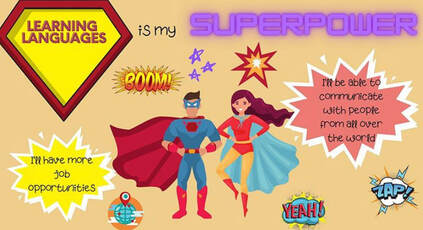
Another nice start of year activity. Suitable for younger learners. Go through some reasons with them about the benefits of learning a foreign language and then ask them to create a poster entitled 'Learning Languages is my Superpower.' Encourage them to add their 'powers' (the skills/advantages of knowing another language).
I adapted this from the 'Being Bilingual is my Superpower' sketch by @educatorBMLs
I adapted this from the 'Being Bilingual is my Superpower' sketch by @educatorBMLs
Super Six
|
One of Doug Lemov's 'Do Now Tasks:' Super Six. Six questions or words from the last lesson. Really easy to write up on the board as you walk in. When I've had a bit more setting up time and been in a computer room, I've set this up on mentimeter.com and students have created a word cloud. This is great as it updates in real time and students can see their words appear on the teacher's screen. We can then go through and discuss/translate the words together. Here's one I did on 'environment' with Y11. Apologies for the lack of capital letters, the font didn't allow for them (though it made a good for a good reminder for the students!)
|
Dreimal
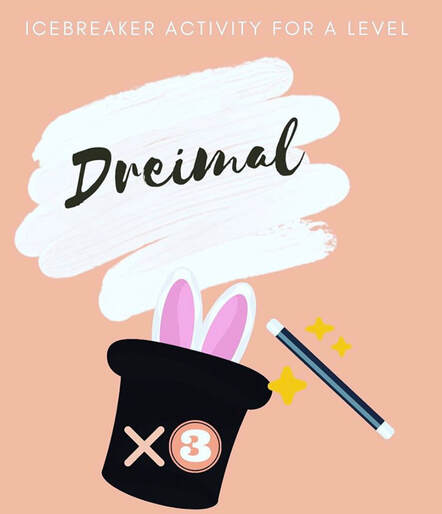
This is a good icebreaker activity for sixth form. It involves three rounds (hence the name dreimal- three times in German).
- - Students start by writing down two words in the TL on small separate pieces of paper (with a large group, stick to one word) and the words are put in a hat.
- - Split the class into two teams.
- - Round 1: Students take it in turns to take out a word from the hat and explain in ENGLISH taboo-style (without saying the word) to their group. They have a time-limit (30 seconds usually plenty!) They keep the word. Keep going until all words have been taken.
- - Round 2: Do the same but now in German!
- - Round 3: But this time they act it out.
- The game gets quicker as from round 2, the students already know the words. It's just a matter of remembering it and guessing the right one!
Question Word Listening
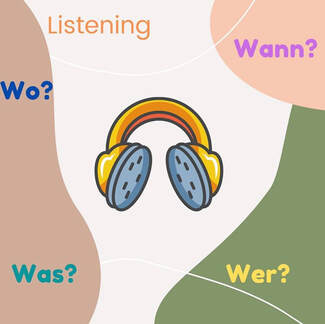
Listening is such a difficult skill for learners. One way I tackle difficult listenings with a class is by putting some question words on the board and asking students to write down notes under the headings. What is happening/ When (dates/times they hear)/ Where is it taking place/ Who being mentioned etc. It helps them to summarise and also listen out for detail before completing the actual task. This works well when listening to authentic resources/ news.
Word of the Week
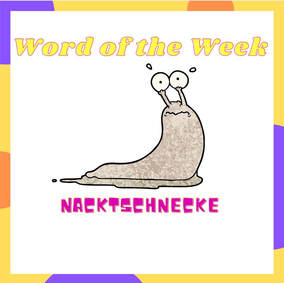
Share a word of the week with your classes. I usually try to come up with unusual/funny ones. As a starter or challenge during the lesson, ask students to see if they can write a sentence with the word or include it somewhere in their word.
Vocab Tennis
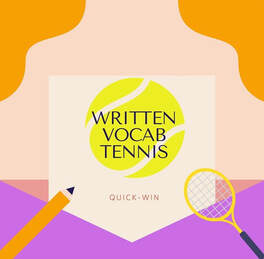
Write a topic on the board and students have to say a word to their partner on that topic. Their partner must say a different one back without hesitation (not allowing the invisible tennis ball to bounce more than once!)
A covid-safe version would be to ask students to write down their words. Another challenge would be to write a word which begins with the last letter of the previous word!
A covid-safe version would be to ask students to write down their words. Another challenge would be to write a word which begins with the last letter of the previous word!
Market Place
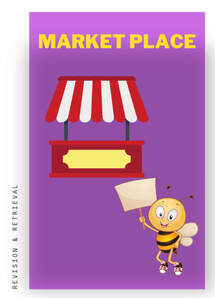
Another good group revision activity. Works well at the end of a topic. Put students into groups of 4ish and give them each a different topic, subtopic or grammar point. They are also given a large piece of poster paper. They work together on their 'market stall' or lesson to teach others in the class. One student in the group is picked as the presenter/market stall holder and the others in the group go round with their book and take notes from another group. The presenter/market stall holder 'teaches' their topic to the others. Rotate until the students have been 'taught' all topics. They then go back and teach their findings to the presenter/market stall holder.
It is called 'market place' as there is no structure to going around the class. The market stall holder may want to 'shout' and 'market' their topic to get the most customers. It is quite busy and crazy but a nice, active way to revisit and revise topics.
It is called 'market place' as there is no structure to going around the class. The market stall holder may want to 'shout' and 'market' their topic to get the most customers. It is quite busy and crazy but a nice, active way to revisit and revise topics.
Who Dares Wins

My favourite retrieval game at the moment! Put a topic on the board. Students work in pairs and have to think about how many words they can guess on that topic. They write the number on their whiteboard. They then have 1 minute to write that many words. If they manage it, they keep their points. If they don't, they lose all of their points! The competitive nature of this game and the risk element encourages students to aim high and they then work together to retrieve previously learnt vocabulary. Plus it's pacey and fun!
Stop the Bus!This seems to be another MFL teacher staple. I have been calling it ‘Stop the Bus’ but I think some may call it the ‘box game’ or ‘magic squares.’ I think I may have muddled it with another similar game, but calling it this has worked well this week.
I draw a bus on the board with 6 windows. I number each window. I set a timer and begin asking students a series of questions/translations. When a student answers, their name is assigned to a seat (box) in the bus. Once all places have been filled, a student answers a question and replaces one of the names in the boxes. The traditional game requires a student to knock another student out of the box. I played with this with a group and found certain students were targeted which I wasn’t comfortable with, so I varied it to include a dice roll. So once all seats are filled, a student answers a correct question and I roll the dice. The student in that seat gets replaced. Once the timer is up, I shout ‘Stop the Bus’ in the TL and all students on the bus get a reward. Students have loved this game this week. Thanks to @pagepracticepodcast @madamebrown89 and @mflresources for sharing this game on Instagram! |
Google Earth: I’m Feeling Lucky

This one involves tech so is slightly different from my normal quick-wins which usually require just a whiteboard and pen. BUT if the tech is working, it is no prep and in my experience, involves high engagement and motivation from students! My Y10s went crazy for this and it was as if they’d never seen google earth before!
This can be done by the class teacher at the front or students can find their own if they have a computer/device.
- Launch google earth
- Click on the ‘I’m feeling lucky’ dice to be transported anywhere in the world
- Drag the little man onto street view
- Describe what you see in the TL
- Extra tip - once you’ve allowed students a few minutes of excitement, ask them to print screen and paste into a PPT/doc otherwise they will continue playing around with street view!
Thanks to @joedale for sharing the idea in the TMMFL icons webinar and Seneca CPD webinar (Sept/Oct 2020).
This can be done by the class teacher at the front or students can find their own if they have a computer/device.
- Launch google earth
- Click on the ‘I’m feeling lucky’ dice to be transported anywhere in the world
- Drag the little man onto street view
- Describe what you see in the TL
- Extra tip - once you’ve allowed students a few minutes of excitement, ask them to print screen and paste into a PPT/doc otherwise they will continue playing around with street view!
Thanks to @joedale for sharing the idea in the TMMFL icons webinar and Seneca CPD webinar (Sept/Oct 2020).
The Longest Sentence
|
A super-easy quick win. Students get quite competitive with this despite how simple the idea is! Put a sentence starter on the board and ask students to write the longest sentence they can. It must only be ONE sentence (encouraging them to think of connectives, intensifiers etc). I set a timer but don't tell them how long for. Reward the winner.
|
Lesson Lift-Off
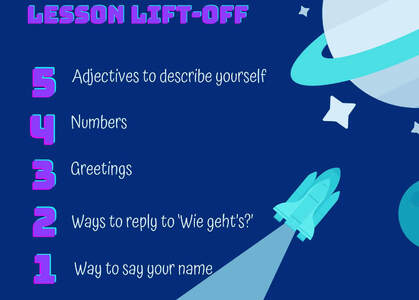
A nice retrieval practice starter/do now task: Lesson Lift-off. Encourages students to think back to previously taught work. This is one I used with Y7 after October half-term thinking back to unit 1 and before starting our new unit. Thanks to @thisteacherrox on instagram along with others who I have magpies this idea off!
Flashcard Frenzy.
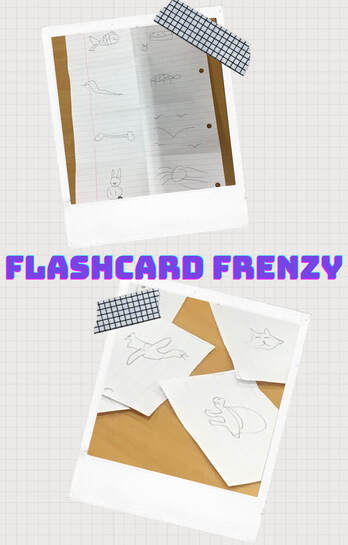
I think I have done this activity every year since I started teaching. Y7 love it! I tend to do this for the topic of 'Animals' but it could be used for any topic.
Students fold a piece of A4 paper so they have 8 spaces. The teacher says a word/sentence in the TL and then counts down in the TL from ten. Students have to draw the word in one of the spaces but only have ten seconds. It gets a bit crazy, especially if they haven't finished the previous drawing. But no time for artists! I just tell them a pictorial representation is fine; so a carrot for a rabbit, bone for a dog etc.
They then cut/rip each bit and create a set of eight flashcards to play games with. I start by saying the animal in the TL and getting the students to show me their picture. We then have a good giggle before students play games in pairs.
This is a no-prep, fun, relationship-building game and gets them talking. We also tend to move onto talking about how to revise and how easy it is to make a set of flash cards!
Students fold a piece of A4 paper so they have 8 spaces. The teacher says a word/sentence in the TL and then counts down in the TL from ten. Students have to draw the word in one of the spaces but only have ten seconds. It gets a bit crazy, especially if they haven't finished the previous drawing. But no time for artists! I just tell them a pictorial representation is fine; so a carrot for a rabbit, bone for a dog etc.
They then cut/rip each bit and create a set of eight flashcards to play games with. I start by saying the animal in the TL and getting the students to show me their picture. We then have a good giggle before students play games in pairs.
This is a no-prep, fun, relationship-building game and gets them talking. We also tend to move onto talking about how to revise and how easy it is to make a set of flash cards!
Vocab Race
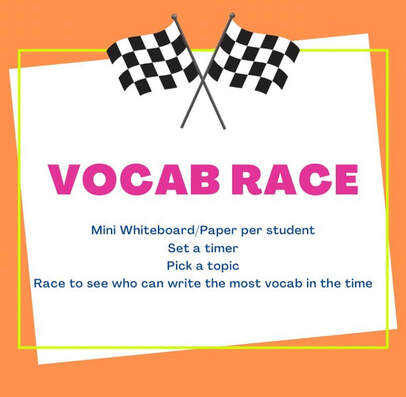
I love a run to the board game. If possible and safe to do so, split the board into two, set a timer, give a pen to a person on either side of the classroom and let the teams race to the board (one-by one) and write as much vocab as they can on a specific topic. Students can only write one word and must then pass the pen onto someone else but they can copy a word from the opposition! Spelling must be right for the point! The team with the most correct words at the end of the time, wins.
If students can't run to the board, try it on a mini-whiteboard or piece of paper and in pairs!
Good revision and competition!
If students can't run to the board, try it on a mini-whiteboard or piece of paper and in pairs!
Good revision and competition!
Highlighter Splat
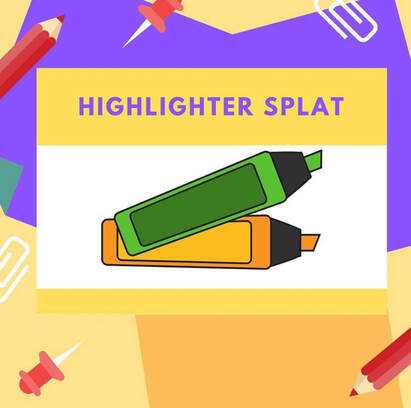
Thanks to @morganmfl89 who shares this brilliant highlighter splat idea in her book (100 ideas for secondary teachers: outstanding MFL lessons).
Students have a list of words (shared between two), you shout out the word in English/TL and they have to find the translation. Each student has a different coloured highlighter (or they could just circle/cross out the word with a different coloured pen) so the first to highlight wins the word.
The student with the most highlighted words at the end, wins.
I even played this with my year 13 students as a more exciting way of testing key vocab on the novel we are studying! Don't underestimate simple games for older students :)
Students have a list of words (shared between two), you shout out the word in English/TL and they have to find the translation. Each student has a different coloured highlighter (or they could just circle/cross out the word with a different coloured pen) so the first to highlight wins the word.
The student with the most highlighted words at the end, wins.
I even played this with my year 13 students as a more exciting way of testing key vocab on the novel we are studying! Don't underestimate simple games for older students :)
Competitive Reading
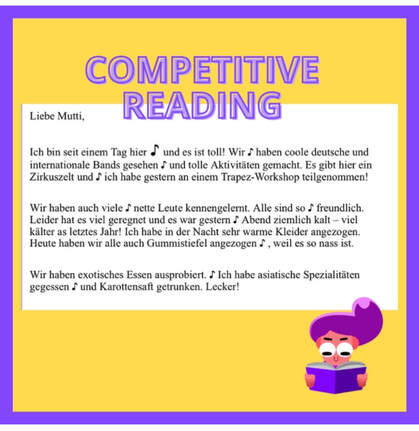
Competitive Reading (also known as beware the bomb) is an activity I have seen shared a few times on social media and in webinars. Thank you to @wozniakjennifer and @rattiemfl who I know have shared it recently.
This text is from the Stimmt 3 textbook which my school has a subscription for.
Students work in pairs and take turns reading either 1, 2 or 3 words. The student who lands on the music note (or bomb) loses the point so their partner wins the point and adds to their tally. The student with the most points at the end of the text wins. The game works in the same way as the game 11 or 21 only it's words rather than numbers.
Students were all engaged with the reading when I tried this and they enjoyed the competitive element. I was worried they wouldn't have taken in what they were reading but they all seem to be able to answer my questions on the text afterwards!
This text is from the Stimmt 3 textbook which my school has a subscription for.
Students work in pairs and take turns reading either 1, 2 or 3 words. The student who lands on the music note (or bomb) loses the point so their partner wins the point and adds to their tally. The student with the most points at the end of the text wins. The game works in the same way as the game 11 or 21 only it's words rather than numbers.
Students were all engaged with the reading when I tried this and they enjoyed the competitive element. I was worried they wouldn't have taken in what they were reading but they all seem to be able to answer my questions on the text afterwards!
Don't all count at once!
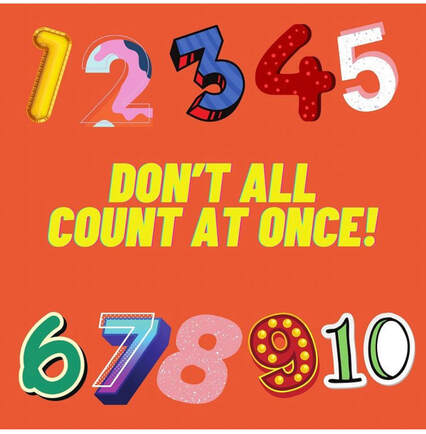
Heads down, the class tries to count to 10 in the TL. So one will shout 'eins,' then another 'zwei' and so on. Sound easy? The catch is that only one student can shout a number at once and because they can't see each other, they have no idea who is about to shout a number. If more than one student shouts a number at the same time, they have to go back to the start.
This game encourages patience, team work and also gives the teacher a 5 minute breather. I recently had a Y9 group who just could not get to ten and a Y7 group who did it straight away :)
This game encourages patience, team work and also gives the teacher a 5 minute breather. I recently had a Y9 group who just could not get to ten and a Y7 group who did it straight away :)
Collaborative Writing
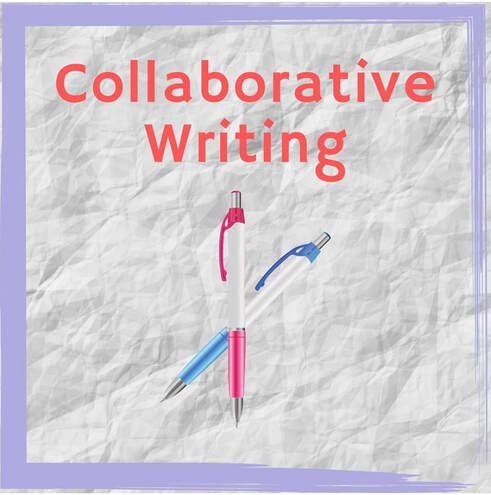
Courtesy of @senoritaraineyhola who has shared a few of her collab essays on Instagram and also @katelanguages who did this in our French lesson recently.
This is a simple, no-prep but great way to share writing tips activity. We simply write a model answer together in class. I usually give students time to brainstorm a few ideas beforehand (connectives, opinions, sentences in different tenses etc) and then call upon them to help me write the answer.
Depending on the size and nature of the group, this may be something students could work together on in small groups or would work well as a revision or intervention activity. I have a fairly small, engaged Y11 group this year and so it works particularly well with them. Also having done this as a student in my French lesson, I can see how beneficial it is being able to copy and share ideas with others.
This is a simple, no-prep but great way to share writing tips activity. We simply write a model answer together in class. I usually give students time to brainstorm a few ideas beforehand (connectives, opinions, sentences in different tenses etc) and then call upon them to help me write the answer.
Depending on the size and nature of the group, this may be something students could work together on in small groups or would work well as a revision or intervention activity. I have a fairly small, engaged Y11 group this year and so it works particularly well with them. Also having done this as a student in my French lesson, I can see how beneficial it is being able to copy and share ideas with others.
Word Analysis
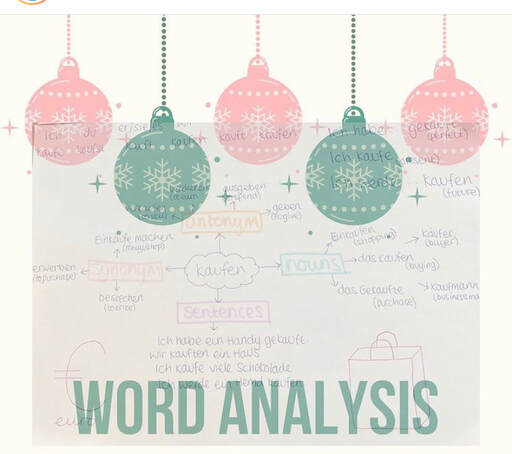
Students pick a word (verbs work well) and they then see where the word takes them. Synonyms, antonyms, write in a sentence, in different tenses, adjective/noun forms etc. This kept Y13 very busy as a starter the other week.
My Story
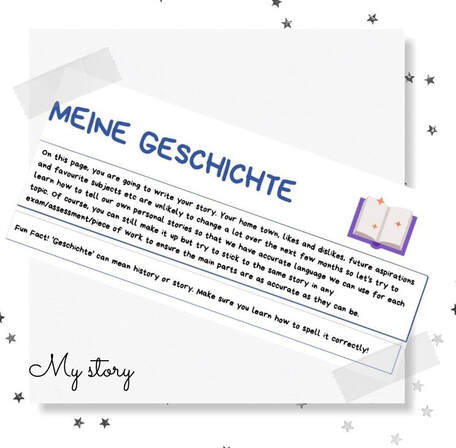
My Story. This was an idea I got from a training course years ago. I think it may have been by Rachel Hawkes but unfortunately I can't remember for definite. It's a great idea!
Recently my Y11s did a mock writing and I was frustrated reading their work that they were making silly mistakes on language which they should have known! So language which was very personal to them; their family, future aspirations, favourite subject etc. The idea with 'my story' is that students practise key phrases about themselves that are unlikely to ever change. So for example; a sentence about where they live, what they do at a weekend, what they want to do after their exams etc. They make sure that for each of these topics, they have at least one grammatically accurate sentence. So I recently asked my students to fill out a sheet with one or two sentences per topic to tell their story. In theory, students could cultivate their story from when they first begin learning the language. For example, the place they live in Y7 is likely to still be the same place they are living when they sit their GCSEs! Here is a copy if you would like to use it:
Recently my Y11s did a mock writing and I was frustrated reading their work that they were making silly mistakes on language which they should have known! So language which was very personal to them; their family, future aspirations, favourite subject etc. The idea with 'my story' is that students practise key phrases about themselves that are unlikely to ever change. So for example; a sentence about where they live, what they do at a weekend, what they want to do after their exams etc. They make sure that for each of these topics, they have at least one grammatically accurate sentence. So I recently asked my students to fill out a sheet with one or two sentences per topic to tell their story. In theory, students could cultivate their story from when they first begin learning the language. For example, the place they live in Y7 is likely to still be the same place they are living when they sit their GCSEs! Here is a copy if you would like to use it:
| meine_geschichte.pdf | |
| File Size: | 42 kb |
| File Type: | |
Word Splurge
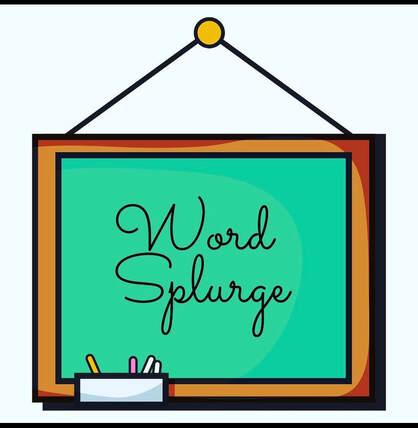
A brainstorm of ideas on the whiteboard. Put a topic in the middle of the board and get students to add words (they can either come up and write themselves or they can call them out). By the end, students will have a big word bank of vocabulary for that topic. They could even add to it at the end of the lesson if they have learnt more. Remotely, I enjoy doing this as a word cloud using mentimeter.com. Thanks to @miss_cwhite on instagram for the idea.
Mastermind
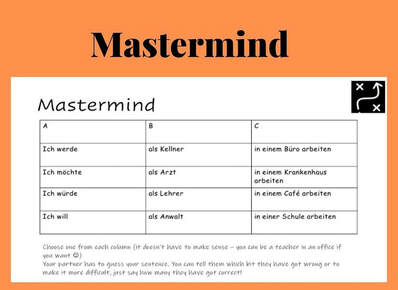
This is a good activity which would work well with sentence builders. Similar to trap door in that one student thinks of a sentence (choosing a word from each column) and their partner(s) has to guess their sentence. The person who created the sentence may wish to tell their partner(s) which bits they have correct or to add an extra bit of challenge, tell them how many elements they have correct but not from which columns; eg 'you have two correct.' I played this game in a French lesson with @katelanguages and it worked well as a speaking activity.
Magic Trick
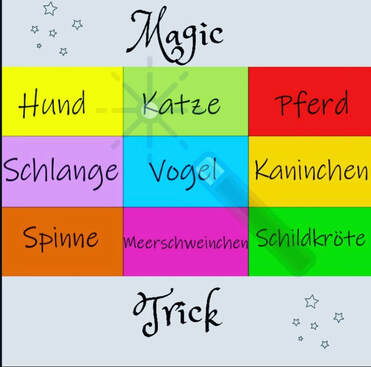
This is something I learnt on my training year from a speaker who came in to demonstrate different ways we could introduce new language. You write words/sentences in boxes on the board, then think of one and write it down on a piece of paper. You pick a student and then tap each box saying the word and the student says 'ja' or 'nein'. The twist or 'magic' is that the student always gets it correct because you have already briefed that particular student before the lesson that for the one you have chosen, you will always tap in the bottom right hand corner of the box. Do it a few times by choosing different words, and the rest of the class thinks the student is psychic or has 'magic powers.' It can probably only work once per class as they soon work it out but it is a good relationship builder and can motivate a more reluctant learner if they are the one chosen!
Strip Bingo
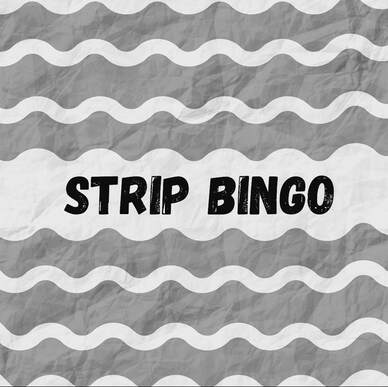
Another oldie but goodie! Students fold a piece of A4 paper into 8 long strips (concertina-style as if they were making a fan). They open it out and write a word or sentence on each strip (teacher has a list of eight options on the board BUT students write them in different orders). You call out the translation and if a student has the answer on the top or bottom of their paper, they can rip it off. If it somewhere in the middle, they can't! The winner is the student who manages to rip off all pieces and so has eight individual pieces on their table. This is a good activity as they hear the same sentences/words over and over again and so are practising key language.
Braingym - Colours
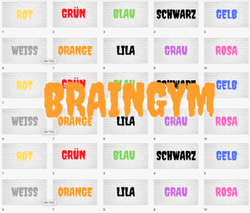
A nice warm-up activity to get students thinking. Show a powerpoint with a different colour word in the TL written on each slide. But change the colour of some of the words. Students have to shout out the colour not the word. I have a German copy saved under 'Deutsch' if you would like a quick download but it is a super-easy to make.
Blockbusters (for A-Level)
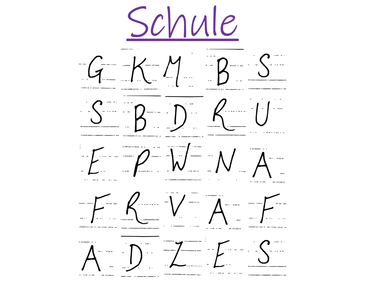
I like playing blockbusters with A-Level. I find younger students get confused by it and it takes too long but it works effectively with older students/smaller classes. This takes a little longer to set up than my other quick-wins as you need a bank of words but I tend to make them up as students are working by picking a topic and then having a flick through the textbook for inspiration ready for the end of the lesson.
Split the class into two and then students take it in turns to pick a letter. You give them the translation of the German word which begins with that letter (e.g 'G' - what is the German for comprehensive school?). If the student gets it right you can shade in that letter (or circle it). Have a different colour for each team. The aim of the game is to get across the board either vertically or horizontally. The other team can block so the other team may need to go around. Check out the 'Deutsch' section of my website for this 'Schule' copy ready to go. I will try and add a few more topics too!
Split the class into two and then students take it in turns to pick a letter. You give them the translation of the German word which begins with that letter (e.g 'G' - what is the German for comprehensive school?). If the student gets it right you can shade in that letter (or circle it). Have a different colour for each team. The aim of the game is to get across the board either vertically or horizontally. The other team can block so the other team may need to go around. Check out the 'Deutsch' section of my website for this 'Schule' copy ready to go. I will try and add a few more topics too!
Would I lie to you?
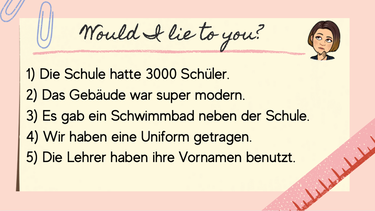
A much more engaging way of doing true/false activities is by playing the game 'Would I lie to you?' I play this game when doing the 'School' topic with GCSE and I base it on the school I actually went to (no uniform and call the teachers by their first names!) Students think it's bizarre! But you could use any topic - a city you know in the TL country, your house when you lived abroad, your place of work. Students have to to work out which ones are a lie and then after you have explained the correct answers, they write the correct versions down.
Photocard - Make it personal!
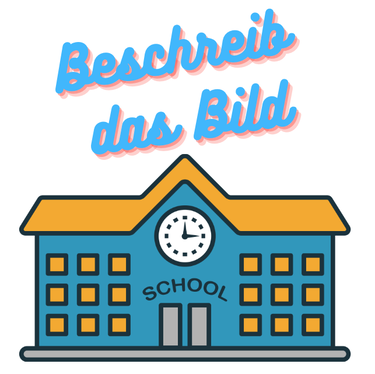
The photo card is my favourite thing about GCSE. I think this element really gets students talking and you can find a picture for any topic. I find the textbook/exam photo cards a bit boring so often when practising, I use other photocard stimuli (see Window-swap and I'm feeling lucky in my 'teacher tech' section.) For this 'make it personal' idea, I use my own photographs or photographs of places from my time abroad. I don't tell students until after they have described the picture but it then becomes a real talking-point and can add a really nice cultural element to lessons. For example, in the topic of school, I share a photograph of the grammar school I worked at in Germany. Students describe the picture, comment on how different the school looks from their own and then I tell them it was the school I worked at. This leads on to a conversation about the German school system too. If you are uncomfortable sharing real photographs, you can just find pictures of the town you lived in/ type of house and keep it quite generic.
Word of the Week.

I like to include a word of the week in my lessons. Sometimes a word chosen randomly out of a dictionary, other times a fun word. I challenge students
to get the word into their work for a reward!
to get the word into their work for a reward!
Scattergories
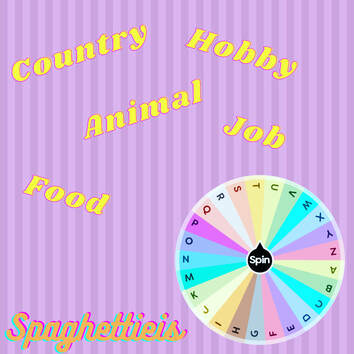
I wasn't sure of the name of this game. I think some people call it 'stop the bus' but I use that title for a different game (see above). I asked my students to shout out 'Spaghettieis' when they had found all of the words and I have seen it called 'Scattergories' too.
Come up with a series of categories and then randomly select a letter. The first person to find a word per category beginning with that letter wins - or to speed up the process, set a time limit and the person with the most categories wins.
Probably more appropriate for older classes if no access to a dictionary.
Come up with a series of categories and then randomly select a letter. The first person to find a word per category beginning with that letter wins - or to speed up the process, set a time limit and the person with the most categories wins.
Probably more appropriate for older classes if no access to a dictionary.
Mexican Wave
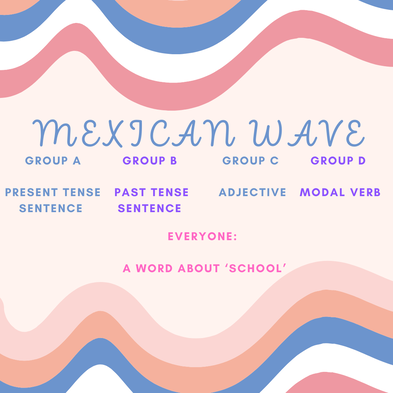
Split the class into groups (they don't need to move) - they just need to be sat in the same part of the room. Assign each one something to listen out for (an adjective, a connective etc). Read a text and whenever a group hears their cue, they do a Mexican Wave. This can also be done to explain a particular grammar point for repetition. Put an English sentence on the board and students have to translate in the different parts e.g I have played - so one group would do shout out the pronoun, one would shout out the auxiliary and one would shout out the past participle, all whilst doing the Mexican Wave. Thanks to the lovely Sonja (@mfl.teacher - insta/ @MissFedrizzi - Twitter) for the idea.
The Wheel
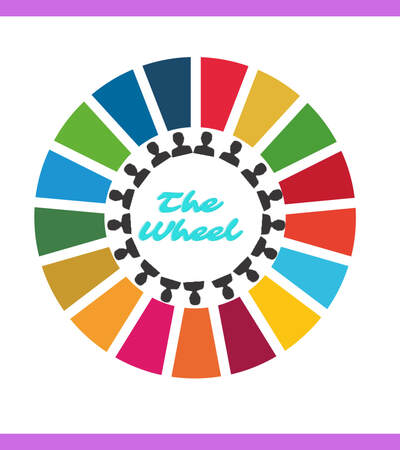
An absolute favourite at our school! It's basically like speed dating but all students stand in a circle (and inner and outer circle facing each other). The students ask and answer questions (they usually start with their books) and then either the inner or outer circle moves one place so they are working with someone else. After a few rounds, students are asked to drop their books on the floor and begin to ask and answer questions from memory. This is great for speaking classroom and I usually take them out of the classroom for this as we have a great space for it in one of our communal areas. During Covid, we have been doing the wheel outside in the sunshine.
Comic Strip for Grammar
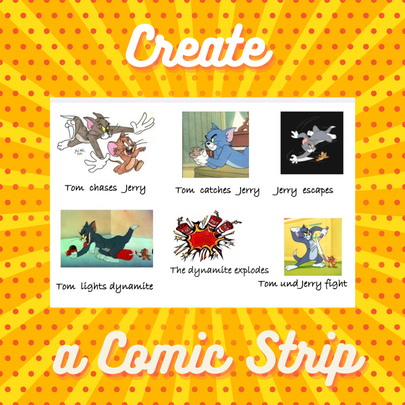
Shared by a colleague some years ago, this is a comic strip idea to practise the present tense. Give students a list of fun verbs comic-book style (to chase, to catch, to escape, to fight, to explode) and ask them to create a simple comic strip. The emphasis is on getting the verb form right rather than using really fancy language. Something like Tom and Jerry works brilliantly here but students can use their imagination and come up with their own. This is a really motivating activity and when I did it last, a student who usually doesn't engage a lot in German lessons was desperate to show me his comic strip - he was full of excitement about what he'd come up with!
Cluedo
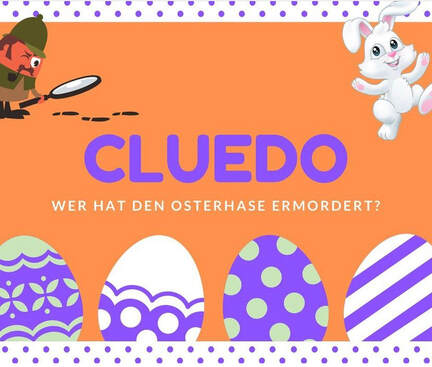
The version of Cluedo I play is 'Who killed the Easter bunny' but this is also a good game for learning rooms of the house and furniture. I write up a sentence which starts 'I think it was...' along with a list of suspects (chick, lamb, chocolatier etc), then a murder weapon (basket, Easter egg etc) and then where it happened (forest, chocolate factory, patisserie etc). Students write a sentence picking one option from each. I then write down a sentence and we find out if anyone got it right. Just a bit of fun but was a nice end to our Easter lessons.
Calligrams
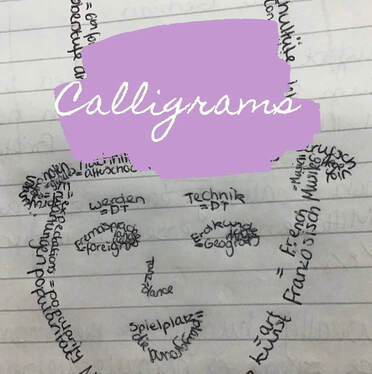
A nice review of a topic is to ask students to create a calligram. Students use their knowledge organiser to find words and phrases they are less familiar with and then write them out into a shape (preferably relevant to the topic). This kind of activity can go on for ever so I set a ten minute timer and left it on the board to give the activity some pace.
Reverse Pictionary
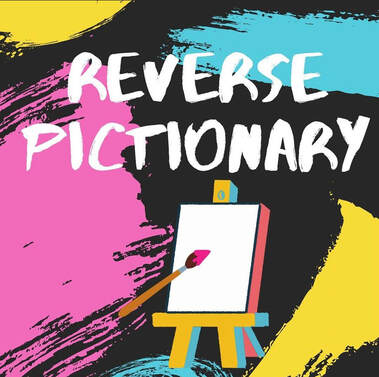
Thanks to the lovely MFLinsta for telling me about this game!
The teacher finds (or draws) an image. This could work well with photo cards! I just found a cartoon image of a park with various different things going on in the picture. I gave instructions in the TL such as 'in the foreground there is a woman listening to music,' ' to the left there is a tree,' ' in the sky there is a balloon' etc... Students then draw their own version on a whiteboard. I then revealed my version and they looked to see how close they were. I did this as a listening but you could also give some students the sentences to read if they needed extra support.
The teacher finds (or draws) an image. This could work well with photo cards! I just found a cartoon image of a park with various different things going on in the picture. I gave instructions in the TL such as 'in the foreground there is a woman listening to music,' ' to the left there is a tree,' ' in the sky there is a balloon' etc... Students then draw their own version on a whiteboard. I then revealed my version and they looked to see how close they were. I did this as a listening but you could also give some students the sentences to read if they needed extra support.
Trioramas
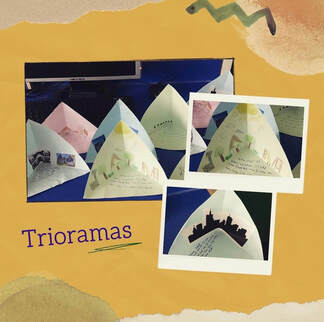
This is a lovely, creative activity to jazz up a piece of writing about 'My Town.' I originally saw the idea shared by @mrs_mac_makes on instagram but I have since seen it shared on Twitter and Facebook too (literally how did we survive without social media?!) I won't share the instructions on here as you can just do a search of 'trioramas' and find endless tutorials online.
The Detective Game
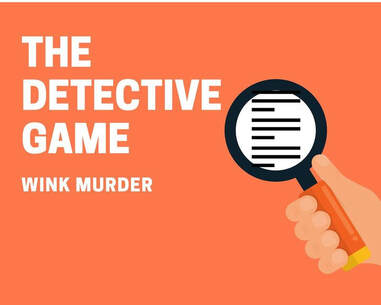
This is a great game for practising phonics and pronunciation! I start by having a list of sounds/letter-strings we have been recently working on and then in a later game, put up actual words which practise the sounds.
-Have a list of sounds/words on the board
-A student is picked as a detective and leaves the room (cue SLT telling off students as they think they have been sent out - oops)
-A student in the classroom is picked and they have to come up with a sign (scratching their head/tapping their pen etc)
-The detective comes back in and the class begins chanting the sound/word
-They change to the next sound/word in the list when they see 'the murderer' make the sign.
-The detective has three chances to guess who the murderer is
-Once they have guessed, pick a new detective and start again
-Have a list of sounds/words on the board
-A student is picked as a detective and leaves the room (cue SLT telling off students as they think they have been sent out - oops)
-A student in the classroom is picked and they have to come up with a sign (scratching their head/tapping their pen etc)
-The detective comes back in and the class begins chanting the sound/word
-They change to the next sound/word in the list when they see 'the murderer' make the sign.
-The detective has three chances to guess who the murderer is
-Once they have guessed, pick a new detective and start again
Star of the Lesson
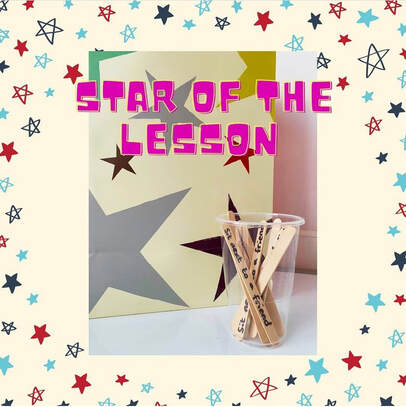
This is a behaviour management/reward technique which I tend to find works well with younger classes. It creates a really positive atmosphere in the classroom and a high level of engagement. Sometimes I choose the star of the lesson myself and other times I ask students to nominate. I also sometimes have more than one. At the end of the lesson, the star(s) of the lesson come and pick a lolly stick and on it there will be a 'prize.' I'm not a fan of prizes as such and I prefer students to get privileges instead (so be the first to leave lesson, sit next to a friend for one lesson etc) but to be honest I struggle with ideas so there are a few actual prizes too such as pencils, rubbers, MFL badges.
Here are the things I write on my lolly sticks:
- sit next to a friend for a lesson
- leave lesson first (not necessarily early but kids love to be out even a millisecond before others)
- a sticker
- pick n mix ( have a delve in the bag for a little prize)
Please let me know if you think of any other ideas, I'd love to add more!
Here are the things I write on my lolly sticks:
- sit next to a friend for a lesson
- leave lesson first (not necessarily early but kids love to be out even a millisecond before others)
- a sticker
- pick n mix ( have a delve in the bag for a little prize)
Please let me know if you think of any other ideas, I'd love to add more!
Culture Vulture
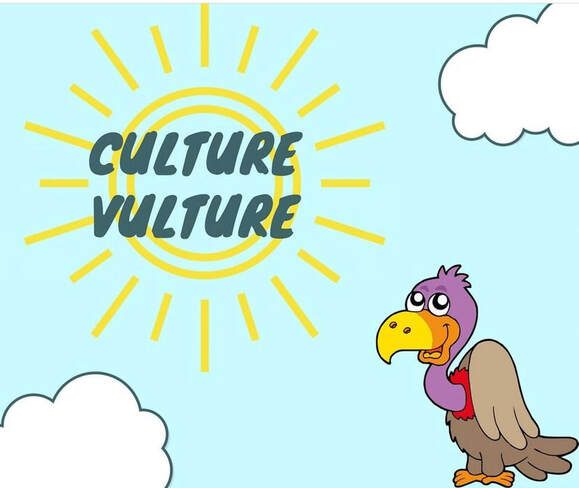
Who doesn't love to add some cultural capital into your lesson? It might be a video, a song, an anecdote from your tie abroad, something in the news from a TL country, a bit of geography.... I try to add some culture into every lesson, sometimes it's the whole lesson but often it's just a little visual on my starter slide which we talk about at the beginning or during the lesson.
Points mean Prizes
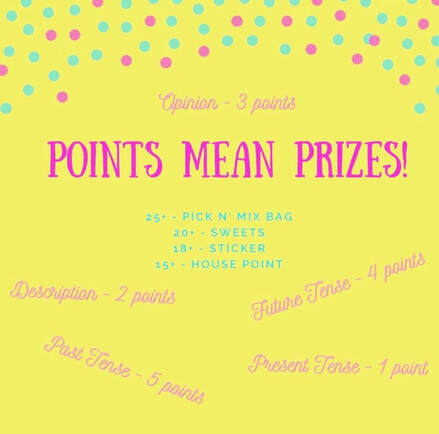
I'm all for intrinsic motivation but there are stages of the academic year where there isn't a lot left in the tank (me and the students!) Here is a little motivator to encourage students to keep pushing themselves to the end. Students have to extend their writing and can earn points (and then prizes) depending on what they have managed to include in their work.
Films
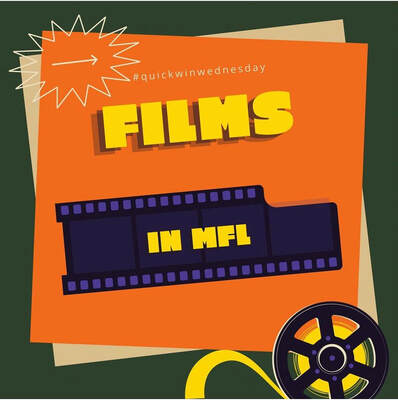
Doing a film project is a fantastic opportunity to bring in some real exposure to the language and culture. I would recommend doing lots of historical and cultural background work to the films too.
Tangled Translations
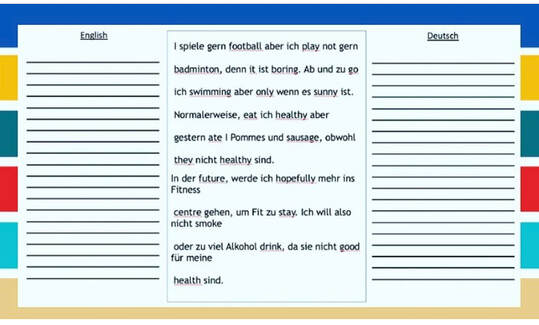
A muddled up text to translate into English and the TL. Really quick to prepare but very effective and students seem to like them. I think they find it less during when they have the support of both languages. This is one I took from a teachitlanguages resource but they are quick and easy to make up yourself,
Pin the Flag on <INSERT COUNTRY>

A take on 'pin the tail on the donkey.' Here students have to find Germany on a map of Europe. I also do another version where they have to pin the Reichstag onto Germany where they think Berlin is. I have little laminated flags which they stick on the board/screen and the closest wins. I did this for a Y6 transition lesson recently and they loved it and German ended up being their favourite lesson of the day!
Swapsies (Quiz, Quiz, Trade).
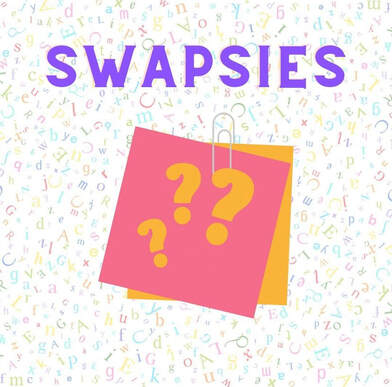
A nice moving around the room activity which gets students speaking and translating. Kagan inspired, students write a sentence in the TL on a post-it or whiteboard and then translate on the back (teacher usually has a list written on the board which could be pre-prepared or come up with on the spot). They walk around, show the English translation to a friend who translates it back into the TL. Both partners needs to translate each other's card to be able to make the 'swap.' They now have different cards and so move around the room to find someone else.
To add a bit of competitio, I ask students to keep a tally of how many 'swaps' they have done and then announce a winner.
To add a bit of competitio, I ask students to keep a tally of how many 'swaps' they have done and then announce a winner.
Bloopers
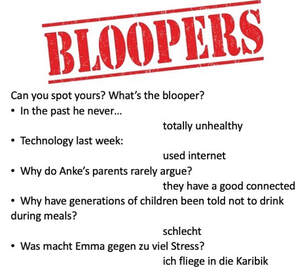
Not a total quick win as this does require some prep. During a feedback lesson from mocks, as well as doing general mistakes, I like to do a bloopers slide picking out sentences from students' papers which are nearly correct but need a bit more. They may need to be more specific, given too much info, didn't make sense in English, written in the wrong language etc. It's a good reminder for students to read and check their work to avoid frustrating mistakes. I try to include an error from (nearly) every member of the class so that no one feels singled out.
Run to the Board game
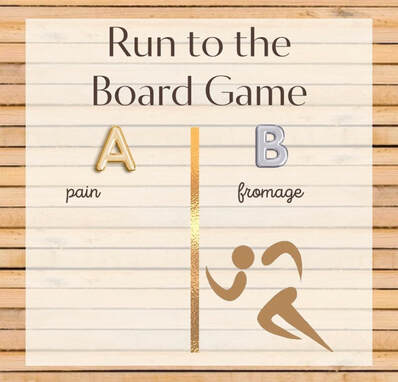
I can't come up with a fancier name for this one :)
Students really enjoy this game. It's good near the end of a topic which is vocabulary-heavy (food and drink for example). The class is split down the middle, draw a line down the middle of the board and write A/B either side. Give a pen to a student on each side and set a timer. Students 'run' (walk sensibly but quickly) to the board and write a word on their side (they can only write one word before passing the pen to another person in their team). They can steal words from the other team and they are allowed to correct the spelling of a word spelt by a team-mate as well as adding their own word. The winning team has the most correctly-spelt words at the end of the timer. Remember to risk-assess the room beforehand and check the floor is free from bags etc.
Students really enjoy this game. It's good near the end of a topic which is vocabulary-heavy (food and drink for example). The class is split down the middle, draw a line down the middle of the board and write A/B either side. Give a pen to a student on each side and set a timer. Students 'run' (walk sensibly but quickly) to the board and write a word on their side (they can only write one word before passing the pen to another person in their team). They can steal words from the other team and they are allowed to correct the spelling of a word spelt by a team-mate as well as adding their own word. The winning team has the most correctly-spelt words at the end of the timer. Remember to risk-assess the room beforehand and check the floor is free from bags etc.
Bob Up
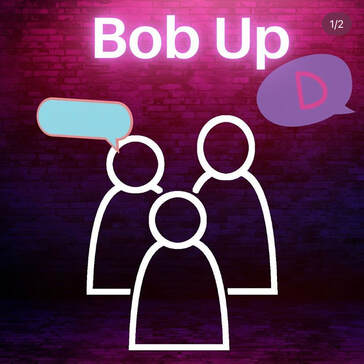
Split the class down the middle and give students on each side a number or letter so there is a student on either side with the same number/letter. Ask for a translation of a word or sentence and then shout out a number/letter. The first student to shout out correctly wins a point for their team.
Retrieval Grid
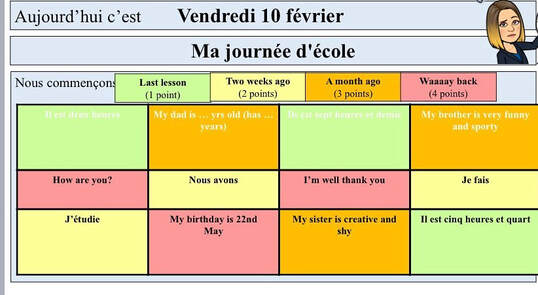
This activity is shared a lot and is originally from @katejones_teach.
I use this activity as a starter a lot and it went down well in a recent observation with SLT.
Students get points for translating words/phrases from previous lessons and topics. I keep the same template and then just change the vocab each time.
I use this activity as a starter a lot and it went down well in a recent observation with SLT.
Students get points for translating words/phrases from previous lessons and topics. I keep the same template and then just change the vocab each time.
Chocolate Bar Revision - chocolate bars sadly not needed :(
|
I mean, I'm sure you can come up with some creative ways of including real chocolate in this activity :) but it actually hasn't got anything to do with chocolate...
Students fold a piece of paper into 8 and then have a set time to walk around the room sharing about a particular topic. Any new idea should be written in one of the spaces on the sheet. Students can share the ideas of others so even students who have no idea at the beginning soon have something to share. Students can even go onto the back and aim for 16 ideas. This is good for vocab revision and I've also done this as a 'share ideas about Christmas in Germany' lesson to see what the class already knew. I magpied this idea from an Isabella Wallace CPD session a few years ago and it can be found in her book 'Talk less teaching.' |
Wordle
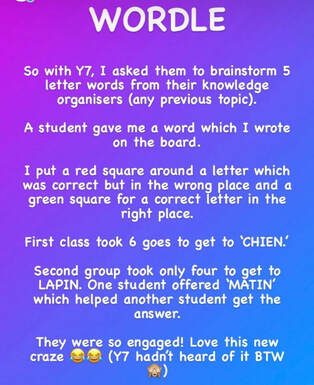
Explanation on the pic! A great way to jump on the Wordle-bandwagon with MFL classes!
Heads down, Thumbs up
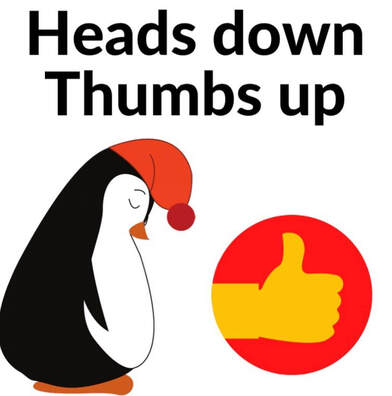
Students love this game but I hate it! I find it really difficult to make it a decent learning activity and give it some linguistic value. The best I have come up with is where each student stands under a word or sentence in the TL on the board and the student who has had their thumb 'swizzled' (as I call it) has to translate the word or sentence they are stood underneath.
@amandaziebeck on instagram suggested that the student 'guessers' could ask a question in the TL to the person they think has twizzled their thumb, which is a nice idea!
@amandaziebeck on instagram suggested that the student 'guessers' could ask a question in the TL to the person they think has twizzled their thumb, which is a nice idea!
Elf
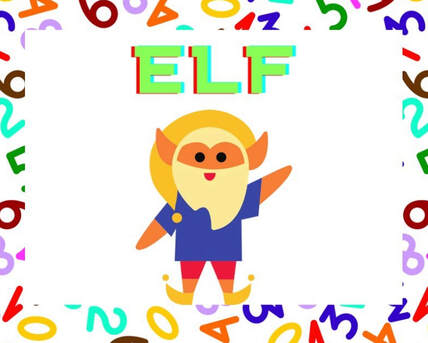
This is the 11's game where students stand in a line and count consecutively (up to three numbers) in the TL. The student who says 'elf' has to sit down. I love the German name obviously but it works the same in other languages. Onze just doesn't have the same ring to it :)
Name Card
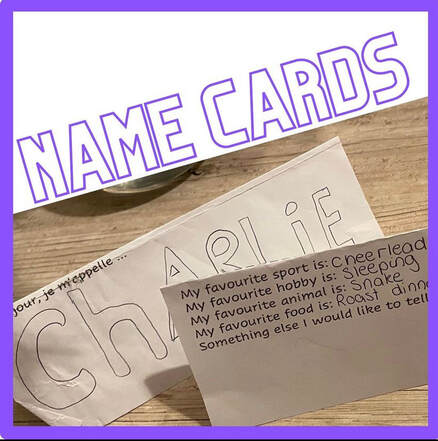
I remember doing this activity in my very first German lesson and despite it being the most basic task ever, I absolutely LOVED it. I thought writing the German eszett ß for the first time was so exotic lol and that learning German was going to be so exciting! I'm not sure my Y7s get quite as giddy about writing ß as me but I still think this is a great activity!
I use it in the first lesson with a new class. They take a piece of A4 paper or card and fold it in the middle. On one side in big letters they write Ich heiße/ Je m'appelle/ Me llamo etc with their name and then on the back, they jot down their favourite sport, animal, food and hobby. They also have the opportunity to tell me something else they would like me to know. The idea is that as well as knowing their names straight away and being able to build relationships, I can also incorporate some of their 'favourites' into our lessons.
I use it in the first lesson with a new class. They take a piece of A4 paper or card and fold it in the middle. On one side in big letters they write Ich heiße/ Je m'appelle/ Me llamo etc with their name and then on the back, they jot down their favourite sport, animal, food and hobby. They also have the opportunity to tell me something else they would like me to know. The idea is that as well as knowing their names straight away and being able to build relationships, I can also incorporate some of their 'favourites' into our lessons.
Football League Vocabulary Challenge
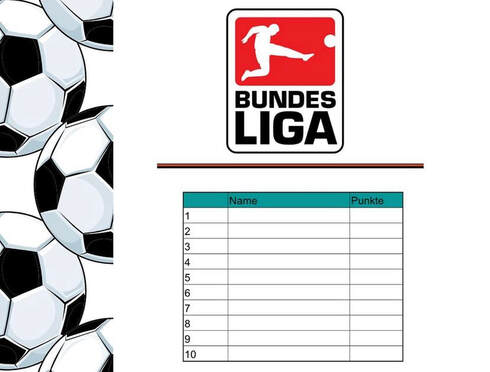
This isn't for every class but it's a competition that I find some classes really get on board with.
I am still in the 'learn vocabulary explicitly at home' camp and I do regular vocab tests with my classes. I focus more on their revision and am I seeing progress over the year rather than "you must get 7/10 to pass otherwise you come back for detention!" I want students to be honest with their scores so that we can work on ways for them to improve.
For some groups, I turn their vocab scores into a competition and do a football league. I add up their scores every week and just show the top 4/5 so that I don't demoralise anyone near the bottom. I give a little prize every half term to the winner. I restart every half term so that everyone starts on a level playing field again! I have even given a prize for the most 'improved' etc.
I am still in the 'learn vocabulary explicitly at home' camp and I do regular vocab tests with my classes. I focus more on their revision and am I seeing progress over the year rather than "you must get 7/10 to pass otherwise you come back for detention!" I want students to be honest with their scores so that we can work on ways for them to improve.
For some groups, I turn their vocab scores into a competition and do a football league. I add up their scores every week and just show the top 4/5 so that I don't demoralise anyone near the bottom. I give a little prize every half term to the winner. I restart every half term so that everyone starts on a level playing field again! I have even given a prize for the most 'improved' etc.
Simon Says
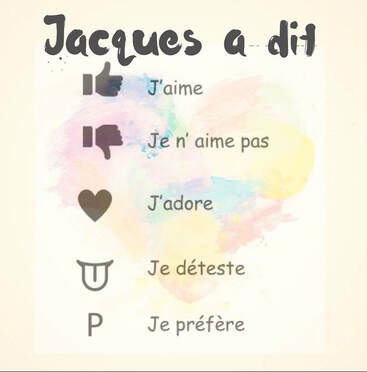
It really is the simple games which often create the most excitement/engagement! Thanks to @karen_t_french for reminding me that Simon Says is a winner with Y7! Karen who teaches us French for the Kate Languages courses for MFL teaches did this with us to practise opinion phrases:
- Thumbs up for 'I like'
- Thumbs down for 'I don't like'
- Make a heart with their hands for 'I love'
- Stick your tongue out for 'I hate'
- Make a 'P' with your hands for 'I prefer.'
This is also a lot of fun when learning body parts!
Students who were out of the game very much enjoyed being my 'wobble watchers' to help me catch others out (any other parents have Bing Bunny on repeat on CBeebies??).
- Thumbs up for 'I like'
- Thumbs down for 'I don't like'
- Make a heart with their hands for 'I love'
- Stick your tongue out for 'I hate'
- Make a 'P' with your hands for 'I prefer.'
This is also a lot of fun when learning body parts!
Students who were out of the game very much enjoyed being my 'wobble watchers' to help me catch others out (any other parents have Bing Bunny on repeat on CBeebies??).
